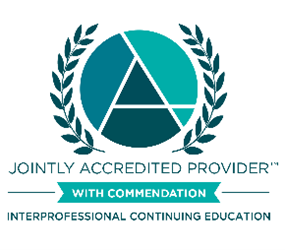
The MTSS Framework and Comprehensive School Mental Health Systems
Do you feel your school/district has high-quality and comprehensive school mental health support? Are you interested in learning about what a Comprehensive School Mental Health System looks like?
This course describes the core elements of comprehensive school mental health systems and introduces the MTSS Framework. Learners will be guided through questions to help them assess the current supports in their school/district and prompted to identify areas where they can implement some aspects of what they learn in this course.
Target Audience
School Nurses, School Health Professionals
Learning Objectives
After completing this course, learners will be able to
- Share a basic description of a comprehensive school mental health system
- Describe the core elements of the MTSS framework.
- Identify two areas of focus for moving schools toward the implementation of comprehensive school mental health systems.
Time | Topic(s) | Presenter(s) |
|---|---|---|
1 min | Introduction and Course Plan | Erin Sivak, MSN, BSN, RN |
79 minutes |
(With reflections included in-between) | Paul Hyry-Dermith, Ed. D |
1 min | Wrap-Up | Paul Hyry-Dermith, Ed. D |
Boston University Chobanian & Avedisian School of Medicine asks all individuals involved in the development and presentation of Accredited Continuing Education activities to disclose all financial relationships with ineligible companies. This information is disclosed to all activity participants prior to the start of the educational activity. Boston University Chobanian & Avedisian School of Medicine has procedures to mitigate all relevant financial relationships with ineligible companies. In addition, faculty members are asked to disclose when any unapproved use of pharmaceuticals and devices is being discussed.
In accordance with the Standards for Integrity and Independence in Accredited Continuing Education, all relevant financial relationships with ineligible companies that faculty, planners, authors, and anyone who may be in control of content has been mitigated.
No faculty has any financial relationships to disclose.
None of the speakers or planners or anyone in control of content for this accredited continuing educational activity have any relevant financial relationships since the content does not relate to any products or services of an ACCME-defined ineligible company; therefore, there are no relevant financial relationships to disclose or mitigate.
Paul Hyry-Dermith, Ed. D
Director
Bridge for Resilient Youth in Transition (BRYT)
Faculty/Speaker
 Erin Sivak, MSN, BSN, RN
Erin Sivak, MSN, BSN, RN
(Former) Assistant Director, BU SHIELD
Speaker

Beverly Heinze-Lacey, MPH, BSN, RN
(Former) Director, BU SHIELD
Nurse Planner

Amy Dark, DNP, MSN-PH, BA, RN
Director, SHIELD, Community Health Sciences
Course Director
CME Program Manager: Lesly Zapata, MPH
 In support of improving patient care, Boston University Chobanian & Avedisian School of Medicine is jointly accredited by the Accreditation Council for Continuing Medical Education (ACCME), the Accreditation Council for Pharmacy Education (ACPE), and the American Nurses Credentialing Center (ANCC), to provide continuing education for the healthcare team.
In support of improving patient care, Boston University Chobanian & Avedisian School of Medicine is jointly accredited by the Accreditation Council for Continuing Medical Education (ACCME), the Accreditation Council for Pharmacy Education (ACPE), and the American Nurses Credentialing Center (ANCC), to provide continuing education for the healthcare team.
Nursing Contact Hours: 1.50 contact hours, of which 0 are eligible for pharmacology credit.
SHIELD is a DESE-approved provider for PDPs. PDP certificates are issued for programs/series lasting 10 or more hours on a topic. CNE certificates are also issued for eligible courses. Learners may use CNE certificates toward PDPs.
| Course Release Date: | 01/04/2022 |
| Material Reviewed: | 11/21/2022, 11/16/2023, 11/14/2024, 12/01/2025 |
| Course Expiration Date: | 11/30/2026 |
Available Credit
- 1.50 ANCC
- 1.50 Participation
Price
Disclaimer
THIS CONTINUING EDUCATION PROGRAM IS INTENDED SOLELY FOR EDUCATIONAL PURPOSES FOR QUALIFIED HEALTH CARE PROFESSIONALS. IN NO EVENT SHALL BOSTON UNIVERSITY BE LIABLE FOR ANY DECISION MADE OR ACTION TAKEN IN RELIANCE ON THE INFORMATION CONTAINED IN THE PROGRAM. IN NO EVENT SHOULD THE INFORMATION CONTAINED IN THE PROGRAM BE USED AS A SUBSTITUTE FOR PROFESSIONAL CARE. NO PHYSICIAN-PATIENT RELATIONSHIP IS BEING ESTABLISHED. IN NO EVENT SHOULD INFORMATION IN THE MATERIALS REGARDING LAWS, REGULATIONS, OR LEGAL LIABILITY BE CONSIDERED LEGAL ADVICE OR USED AS A SUBSTITUTE FOR CONSULTING WITH AN ATTORNEY.
Copyright
This material is copyrighted by the Massachusetts Department of Public Health (MDPH). MDPH grants permission for use of these materials for non-commercial educational use only, provided credit is given to the MDPH. Modification of content is permitted only with prior approval of the MDPH School Health Unit.

 Facebook
Facebook X
X LinkedIn
LinkedIn Forward
Forward